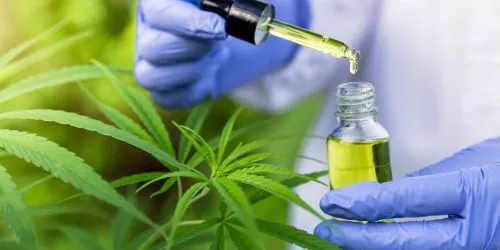
“There is now signicant evidence that CBD has anti-inflammatory and pain perception properties that can assist people living with pain. Research suggests CBD can also help by reducing anxiety and improving sleep which can all assist with a persons ability to deal with chronic pain”
Professor Mike Barnes
Consultant Neurologist
What is Pain and Chronic Pain
Pain is a signal in your nervous system that something may be wrong. It is an unpleasant feeling, such as a prick, tingle, sting, burn or ache. Pain may be sharp or dull. It may come and go, or it may be constant.
Chronic pain is defined as pain that persists for an extended period of time, usually longer than three to six months, and is often caused by an underlying medical condition or injury.
TYPICAL SYMPTOMS

It is estimated that 43% of UK adults (just under 28 million people) currently live with a degree of chronic pain in the United Kingdom.
Source: “The British Pain Society” - britishpainsociety.org

Introduction to CBD and pain
Cannabidiol, or CBD, is a naturally occurring compound found in the hemp plant (Cannabis Sativa). Unlike tetrahydrocannabinol (THC), another compound found in cannabis plants, CBD does not produce a psychoactive effect, which means it does not cause a “high”.
CBD has been gaining popularity in recent years as a food supplement and ingredient in topical products such as creams and balms.
In parallel to this, there has been a significant increase in medical research studies and clinical trials looking at the therapeutic effects of CBD.
How Could CBD Work for Chronic Pain
To understand this, it’s important to first have a basic understanding of the endocannabinoid system (ECS), which is a complex cell-signalling system found in the human body.
The ECS is involved in regulating a variety of psychological and cognitive processes, including pain sensation, appetite, mood, and sleep.
CBD interacts with the body’s endocannabinoid system (and other systems) by positively affecting the cannabinoid receptors, primarily CB1 and CB2 receptors.
Research suggests this interaction can help reduce inflammation and pain perception by inhibiting the release of pro-inflammatory molecules and increasing the levels of anti-inflammatory molecules.
Some quick facts about CBD
- CBD is legal in the UK
- Regulated by the FSA
- It comes from industrial hemp not cannabis plants
- Oldest recorded medicine
- CBD is non-addictive
- CBD is relative safe (WHO report)

There are currently 34 different clinical trials of cbd (cannabidiol) being undertaken in Europe. Source: EU Clinical Trials Register
https://www.clinicaltrialsregister.eu
Research studies on CBD and chronic pain
Several studies have investigated the potential therapeutic effects of CBD on chronic pain. For example, a 2018 review (Bruni, Della Peppa, Oliaro-Bosso et al) of 79 clinical studies found that there was moderate-quality evidence Cannabinoids may be effective in reducing chronic pain associated with conditions such as multiple sclerosis, neuropathic pain, and rheumatoid arthritis
2013 study (Fine, Rosenfeld, 2013) suggests that CBD and other cannabinoids may help reduce chronic pain by interacting with the body’s endocannabinoid system, which plays a role in regulating pain sensation, mood, and other physiological processes.
It is also suggested CBD may have anti-inflammatory properties, which can help reduce pain and inflammation associated with conditions such as arthritis, multiple sclerosis and fibromyalgia.
In a 2016 study published in the European Journal of Pain (Hammel et al., 2016), researchers found that CBD could be effective in reducing pain and inflammation in animals with chronic pain conditions, such as arthritis.
Latest Research and clinical trials on cbd and pain
Cannabinoid Delivery Systems for Pain and Inflammation Treatment
Bruni N, Della Peppa C, Oliaro-Bosso, S et al - 2018
Transdermal cannabidiol reduces inflammation and pain-related behaviours in a rat model of arthritis
Hammell, D.C., Zhang, L.P., Ma, F., Abshire, S.M., McIlwrath, S.L., Stinchcomb, A.L. and Westlund, K.N. (2016),
The endocannabinoid system, cannabinoids, and pain.
Fine PG, Rosenfeld MJ - 2013
















